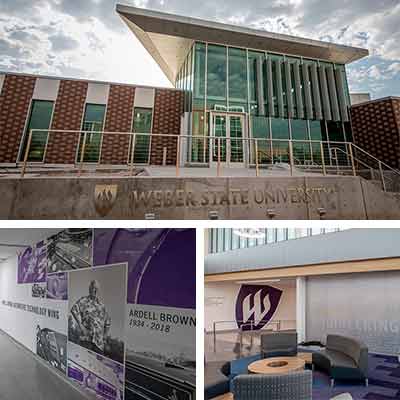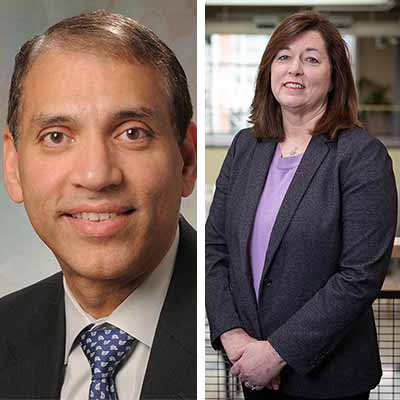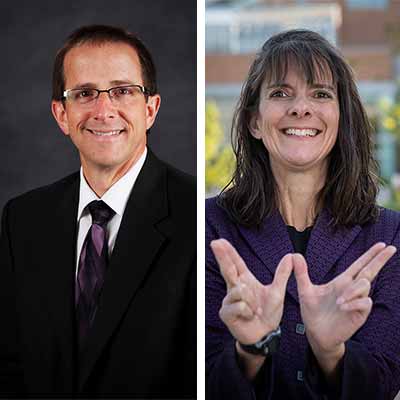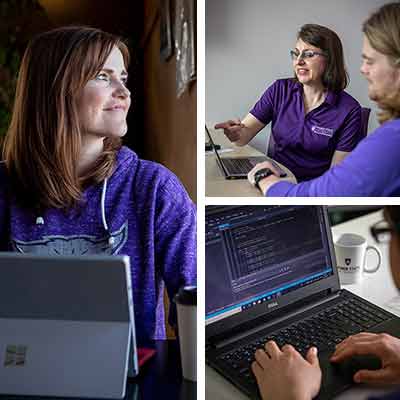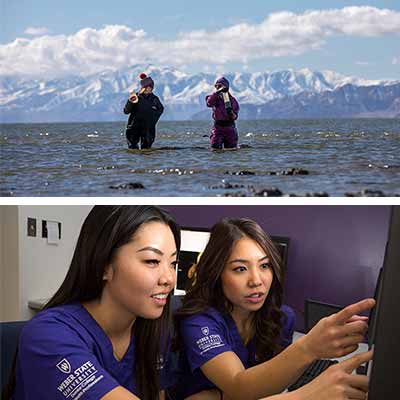Having the vision to lead a university is a significant challenge at any time, let alone during a worldwide pandemic, but leaders who joined Weber State during the 2019–20 academic year stepped up to guide the university through a tumultuous period.
When provost, Ravi Krovi, arrived in March 2020, he presented WSU President Brad Mortensen with a 90-day plan, “which went out the window in the first week, as we moved into COVID crisis mode,” Krovi remembers with a laugh.
What the crisis did provide was an intense crash course on the university’s people and processes. Krovi said he was pleased the strengths that attracted him to Weber State have been on constant display during the crisis. He noted especially the student focus, collegiality, shared governance and fiscal stability.
“You have to be adaptive and flexible,” Krovi said. “That is part of my operating model. Get everyone engaged. You have to collaborate and communicate, which means engaging all the key stakeholders, faculty senate, administration and students in important decisions.”
Weber State also welcomed Kristin Hadley, dean of the Jerry & Vickie Moyes College of Education, and Matthew Mouritsen, dean of the John B. Goddard School of Business & Economics. Both deans were selected in national searches, though each had many combined years of teaching and leadership at Weber State. Hadley and Mouritsen assumed responsibility for their colleges well prepared for a crisis they never expected to face.
Hadley said the College of Education had been working diligently with technology before the pandemic to implement virtual courses for the Master of Education. “These experienced faculty then became the ‘experts’ needed on campus to train faculty in other areas,” she said.
“When we needed them most, our values and principles helped us steer through some of the most trying times any of us have faced,” Mouritsen said. “Our sudden transition to virtual teaching was made much easier because we already knew how we would focus on students.”
New vice president for University Advancement Betsy Mennell arrived with 20 years of external relations experience at several universities, including many years at Northern Arizona University. She found Weber State, with its proud 131 year history, was well positioned to continue serving students and the community in any environment.
“The university’s stability and dedication to helping our students succeed, sustains and strengthens positive relationships with donors and the community even in the most difficult of times.”


